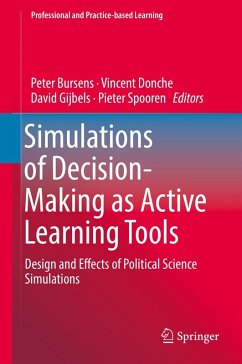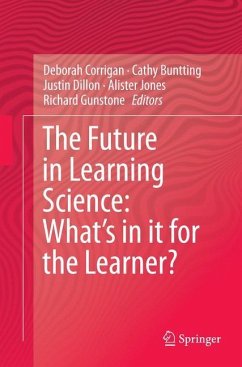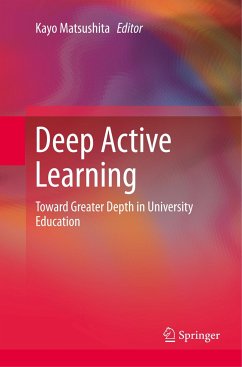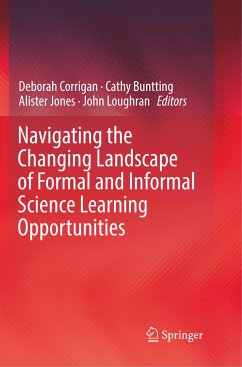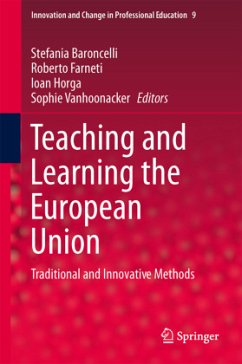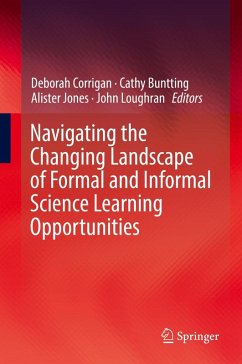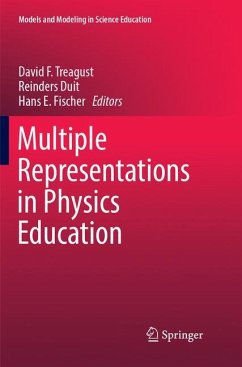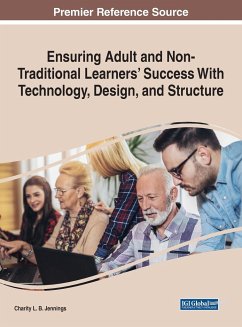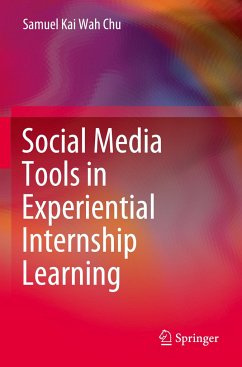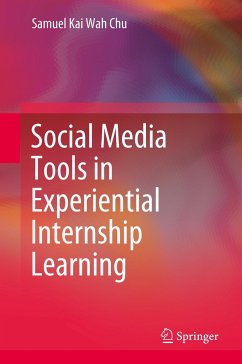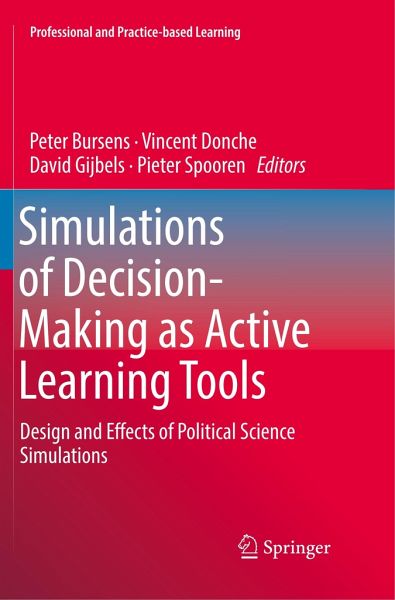
Simulations of Decision-Making as Active Learning Tools
Design and Effects of Political Science Simulations
Herausgegeben: Bursens, Peter; Donche, Vincent; Gijbels, David; Spooren, Pieter
Versandkostenfrei!
Versandfertig in 6-10 Tagen
38,99 €
inkl. MwSt.

PAYBACK Punkte
19 °P sammeln!
This volume brings together both political and educational scientists. While educational research literature has so far not systematically addressed the tool of simulations of decision-making, political scientists have hardly used insights from research on assessment or on motivation and interest of students. Almost all political science publications on simulations merely discuss how to implement the tool in class and fall short of providing evidence of the effects on student outcomes such as increased interest and performance. Combining the two disciplines is mutually enriching. Political sci...
This volume brings together both political and educational scientists. While educational research literature has so far not systematically addressed the tool of simulations of decision-making, political scientists have hardly used insights from research on assessment or on motivation and interest of students. Almost all political science publications on simulations merely discuss how to implement the tool in class and fall short of providing evidence of the effects on student outcomes such as increased interest and performance. Combining the two disciplines is mutually enriching. Political science benefits from state of the art educational science measuring and testing of the claims made by the proponents of simulations, while educational sciences adds the systematic analysis of simulations of decision-making to their list of empirical objects, which also adds insights to the theories on the affective component of student learning. It is the explicit aim of the volume to address how simulating decision-making environments fosters learning. Implications for research and practice regarding student learning are addressed in all chapters.





